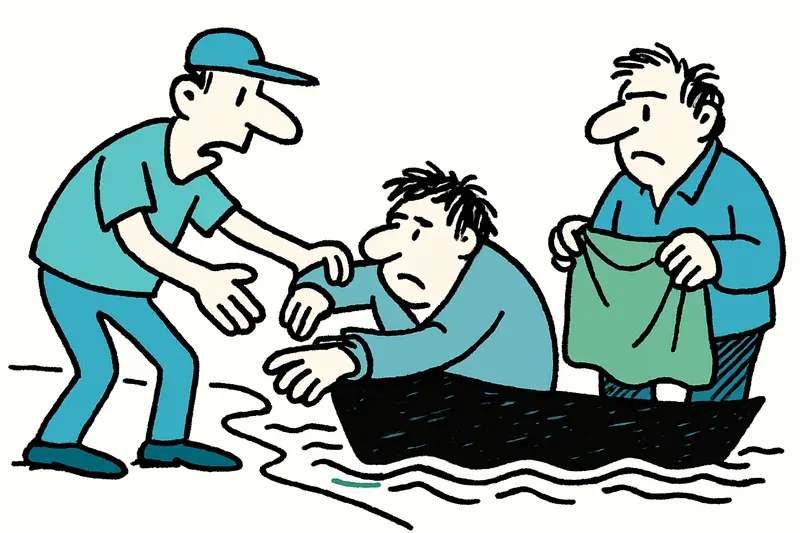Due to a sharp rise in boat arrivals, the Spanish government has declared an emergency. More funds and reception centers in Palma, Ibiza and Formentera are set to be established quickly to help.
Emergency due to rising boat arrivals
On the morning of September 17, the central government declared the so-called migration emergency for the Balearic Islands. Not the word you want to hear at the beach, but apparently necessary: this year, according to the government, considerably more people have arrived by small boats – about 80 percent more than last year.
What should happen now
Madrid will provide a total of 6.75 million euros by the end of 2025. The money is intended for accommodation, medical care, and essential supplies. The plan also includes new reception facilities at the ports of Palma, Ibiza, and Formentera. The idea: quickly register arrivals on-site, provide care, and then organize humane housing.
Why the measure is so urgent
The term emergency in practice means funds can flow faster, bureaucratic hurdles should be removed. Many helpers on the ground, from aid organizations to volunteers, breathe a sigh of relief because urgently needed items – blankets, medicines, interpreter hours – can be procured faster. But it is not a panacea.
At the port of Palma you can currently see fishermen who have become quieter, and the volunteers of local groups who take turns distributing water bottles, diapers and spare clothes. You hear lines like: We must help with dignity, but this is not enough for a Plan B.
What the islands themselves say
City and municipal administrations welcome the additional funds, but warn that short-term centers alone do not provide long-term answers. Issues such as language, integration, legal status and the question of how people will be redistributed remain. Some local councils are calling for clear arrangements between Madrid, the island authorities and international organizations.
Between pragmatism and concern
For many locals, the situation is double-edged: people want to help, but they also see the burden on small communities that already have scarce resources. The Balearics rely on tourism, but people in need cannot be sorted out – and almost everyone here regards that as obvious. At the same time, uncertainty is palpable: weather, smuggling routes and political decisions from Madrid can change everything.
In the short term, the emergency measures are meant to bring relief. In the medium term, however, there is a lack of a coordinated concept: healthcare, housing and legal review require staff and time – more than a few months of budget and new containers can provide.
A local outlook
Walking along the islands' pontoon docks in the morning, you can see the consequences with your own eyes: groups of people, helper vehicles, occasionally heavily laden rubber boats being pulled ashore. Small gestures count: warm blankets, a sandwich, a little time. The question remains whether what was decided now marks the start of a sustainable solution or just a quick fix.
I have spoken with people who have been volunteering for years. They are relieved by the funds but realistic: Money is good, structure is better, said a volunteer as she handed over a thermos of coffee. And life on the islands goes on – between tourists, fishing boats and the quiet, necessary business of aid.
Similar News
Palma in Transition: Which Neighborhoods Are Seeing Income Soar
In parts of Palma, average incomes have risen significantly over the last ten years—especially where wealthy foreigners ...

After 30 Years: Retired Couple Leaves Mallorca – Rising Rents Push Them to the Mainland
After decades on the island, María and Paco must move to Alicante due to rising rents and dwindling pensions. A story ma...

Traffic Cameras in the Tramuntana: Tender Starts Soon
The island council plans to push ahead with the camera project on the Ma-10, which has been stalled for months, through ...

Court confirms right to Islam education in Mallorca schools
A court on the Balearic Islands has decided: parents can demand that Islam education is offered near their children at p...

Balearic Islands report more deadly accidents due to driver distraction
On the Balearic Islands, there are noticeably more deadly traffic accidents involving driver distraction. Police and the...
